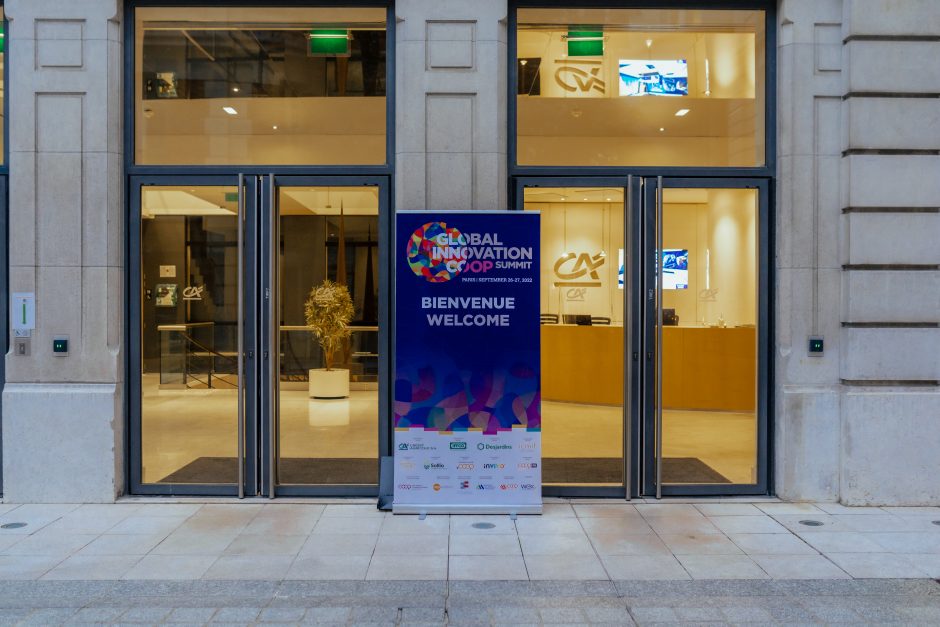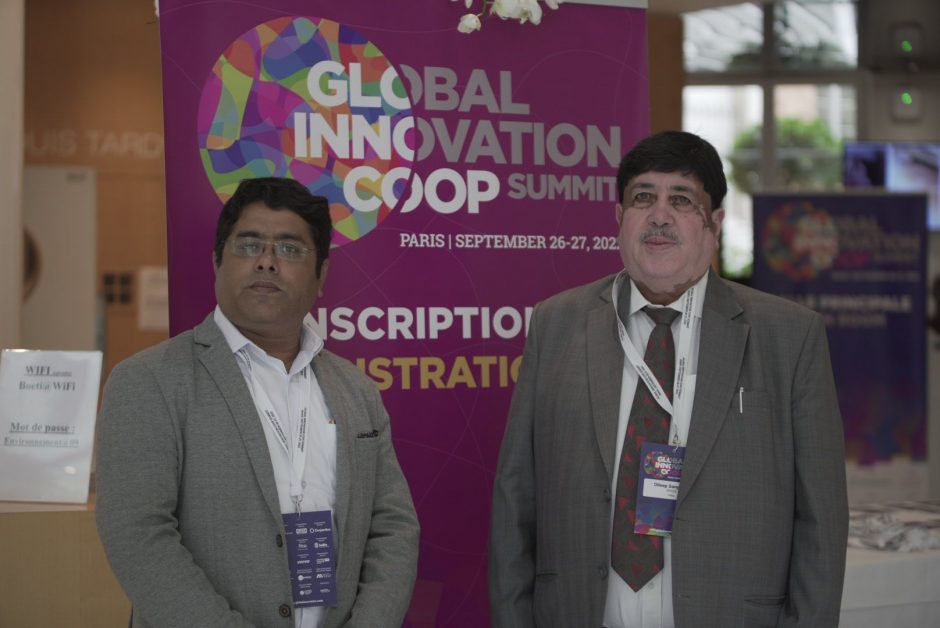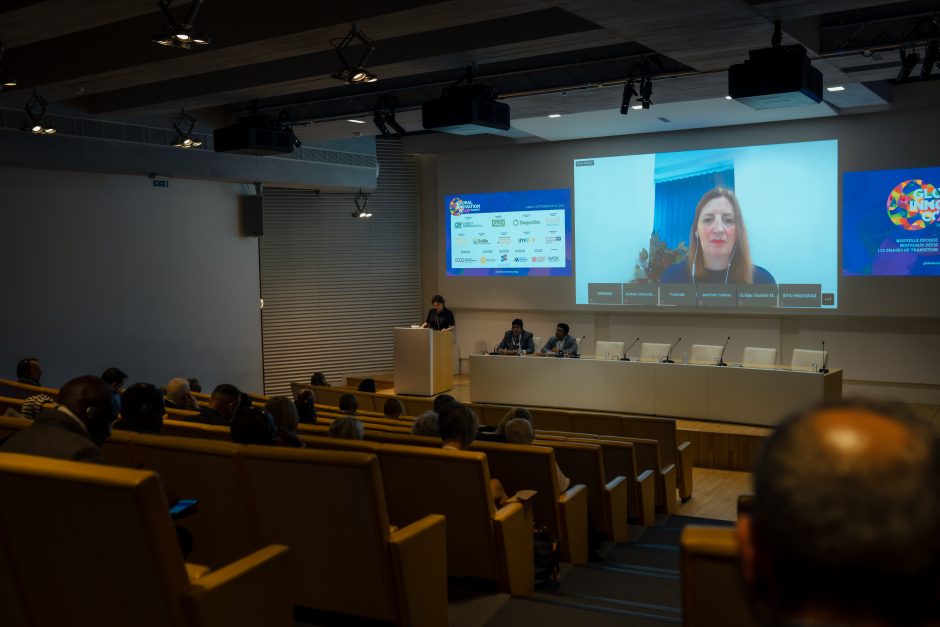What can co-ops do to address global challenges such as climate change, digitisation or inequality? The Global Innovation Co-op Summit in Paris (25-26 September) suggested many co-operative solutions while showcasing best practices from various sectors.
The summit was held both in person at Crédit Agricole’s headquarters in Paris and online, with in-person delegates welcomed by Bertrand Schaefer, federal secretary of Crédit Agricole’s National Federation.

Schaefer said the bank – France’s second-biggest, and the world’s biggest co-op by GDP – is committed to the co-operative governance rules and the principle of being rooted in its local community. To support innovative solutions to modern challenges it founded Le Village by CA, a network of business incubators where start-ups and existing co-ops can meet and work together. The group has invested €1bn in start-ups through its 33 Le Village by CA incubators.
The opening plenary explored how co-operatives are different from other enterprises that label themselves as businesses with a purpose. Rose Marley, Co-operatives UK CEO, highlighted that while “other businesses had woken up to the importance of caring for people and planet”, co-ops do more by distributing power, democracy, decision making and wealth.

Dileep Sanghani, chair of Indian Farmers Fertiliser Cooperative (IFFCO), said his co-op is working to mitigate the impact of climate change by installing solar panels, running a Save the Soil campaign, planting trees and launching a nano fertiliser. He added that wholesalers, distributors and retailers must work together to adopt the latest technology and use the best tools across all regions.

Technology can also play a role. Marley said co-ops need to work with governments for ethical tech initiatives that can transform society. “If that’s not happening we need to create that technology like DotCoop for the whole of the co-op movement,” she said.
The second plenary heard from Antonella Noya, the head of the Unit on Social Economy and Innovation at the Center for Entrepreneurship, SMEs, Regions and Cities. By their nature, co-ops align their economic, social and environmental objectives while enabling citizens to be engaged not only economically, but also socially, she said. And the social economy can play a key role in the future, she added, with the enterprises of tomorrow focusing not just on short-term profit but also sustainability.
“Now is the moment to bet on the social economy and OECD will do this as well,” she said.